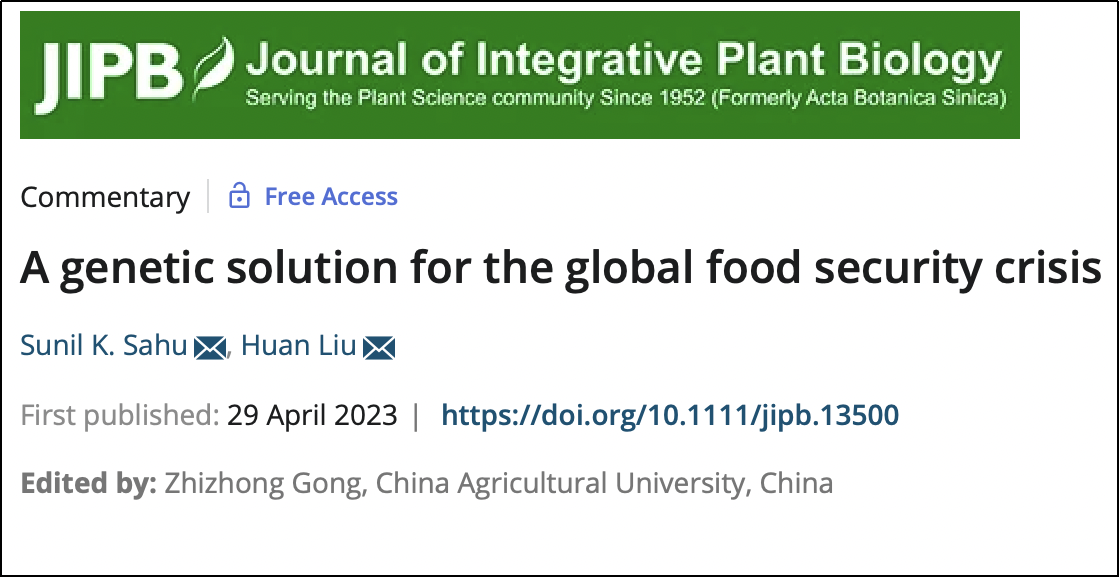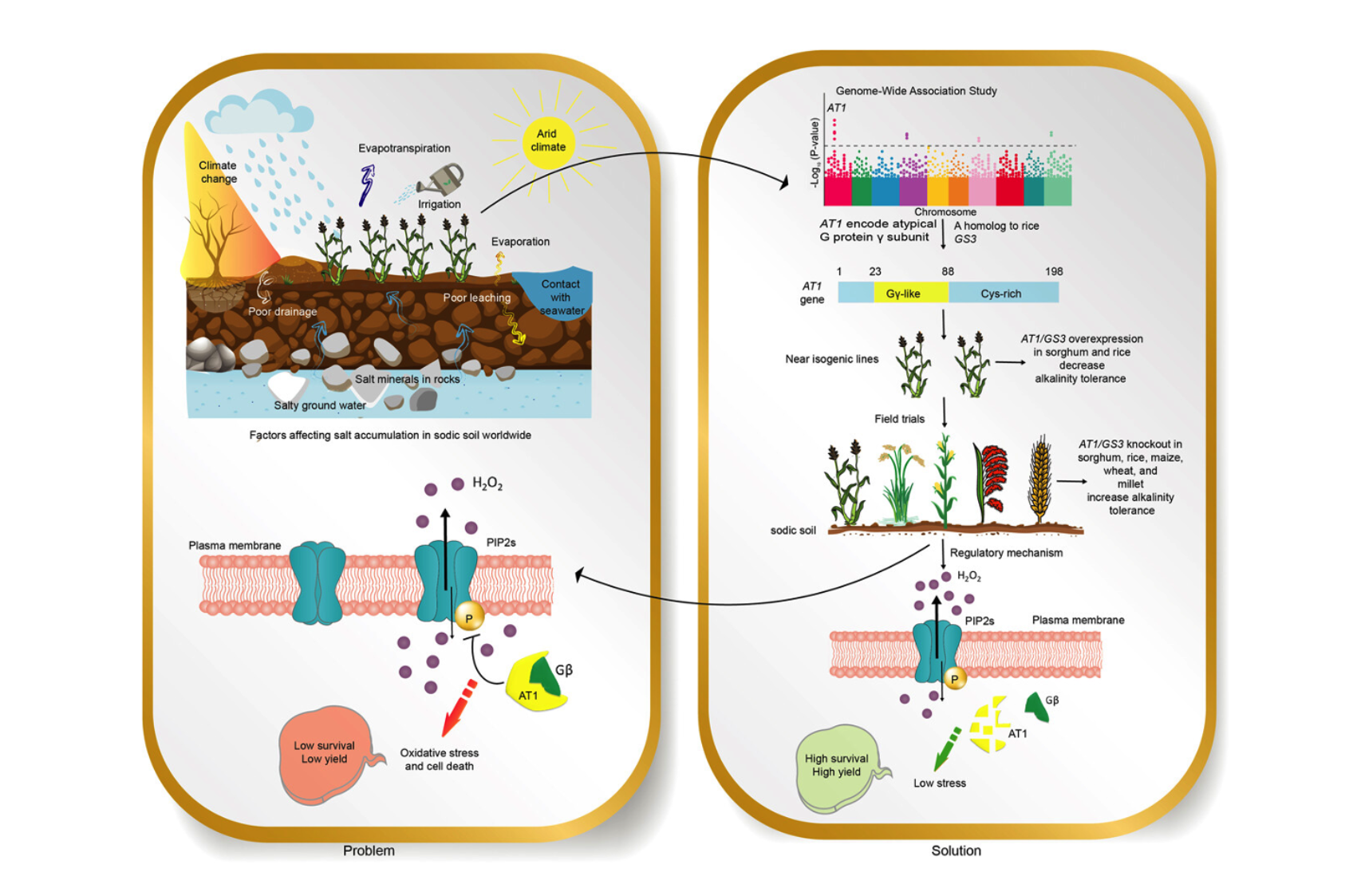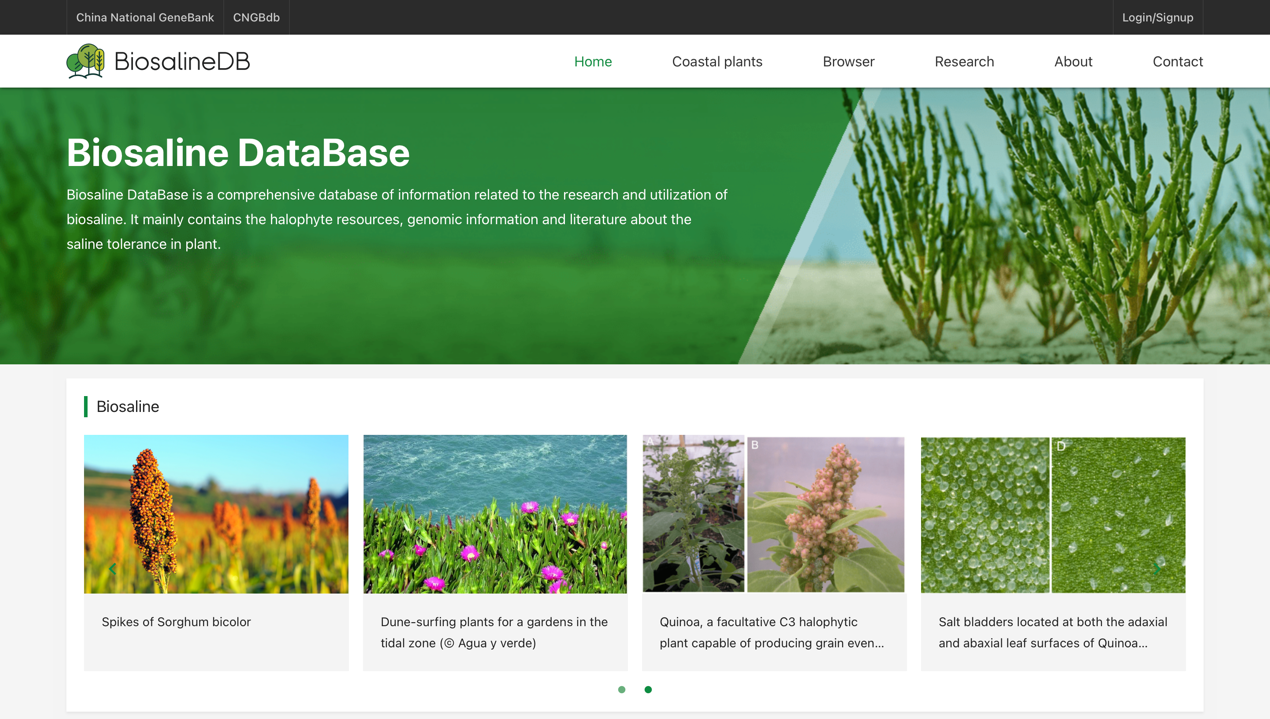Over the centuries, mankind has experienced both agrarian and industrial revolutions, yet the world still faces hunger.
In March, a report released by the World Bank and the United Nations’ Food and Agriculture Organization (FAO) revealed that 45 countries worldwide urgently require food assistance, with millions of people experiencing severe hunger. It is predicted that global crop production needs to be doubled by 2050 to meet the food demands of the growing population.
Genomics has played a critical role in feeding the world. A recent commentary titled "A genetic solution for the global food security crisis," authored by scientists from BGI-Research, sheds light on utilizing salt-alkali land, previously believed to be unsuitable for agriculture, by cultivating a new breed of salt-alkali tolerant crops to address this urgent global issue.
 A genetic solution for the global food security crisis published in Journal of Integrative Plant Biology.
A genetic solution for the global food security crisis published in Journal of Integrative Plant Biology.
Alkaloids can damage the DNA and proteins within plant cells, causing cellular redox stress, including the accumulation of Reactive Oxygen Species (ROS). This redox imbalance can result in cell damage or death, making an alkaline environment unfavorable for crop growth.
Researchers from eight institutions in China conducted genome-wide association studies using 352 samples of sorghum, successfully identifying and cloning the AT1 gene (Alkaline tolerance 1), which is significantly associated with alkaline tolerance in sorghum. Sorghum without the AT1 gene exhibits increased height and greener leaves.
Sorghum, ranked as the world's fifth-most important cereal crop after rice, wheat, maize, and barley, originated from Africa and is one of the earliest domesticated crops. It serves as a significant food source in dry and semi-arid regions thanks to its high tolerance to high pH levels, salinity, drought, and poor soil conditions.
 Schematic representation ofalkaline tolerance gene identification and mechanism to improve crop yields on saline-alkaline (sodic) land.
Schematic representation ofalkaline tolerance gene identification and mechanism to improve crop yields on saline-alkaline (sodic) land.
Further research also demonstrates that the removal of the AT1 gene in wheat enhances its tolerance to salt-alkali conditions.
Researchers conducted field experiments on sorghum, millet, maize, and other crops in various parts of China. These experiments revealed that after removing the AT1 gene, the grain yield of silage, a feed primarily used for ruminant animals, increased by 20.1%.
These findings are astonishing and have the potential to significantly improve the survivability of maize and wheat in saline soil. They also unveil a crucial biological mechanism present in gramineous crops that can universally enhance the yield of related crops.
Over the years, BGI-Research has utilized its technological prowess to support scientific research and achieve high-yield, stable production of important crops such as rice and millet. Saline-alkali agricultural genomics is also a key research area at BGI-Research, and a dedicated database on saline-alkali plants has been established.
 The Biosaline DataBase established by BGI-Research (https://db.cngb.org/biosaline).
The Biosaline DataBase established by BGI-Research (https://db.cngb.org/biosaline).
According to FAO, over 1 billion hectares of land are currently affected by salt, with approximately 60% classified as sodic soil areas. "Even if only 20% of the world's salt-alkali land is used for AT1-improved crops, it will increase annual grain production by at least 250 million metric tons," said Dr. Liu Huan, co-author of the commentary and Chief Scientist at BGI-Research.
"However, future research also needs to consider the negative impacts of genes on crops, such as certain genes causing poor grain threshing in sorghum," he added.
The discoveries in salt-alkali plant research are expected to drive the development of molecular precision breeding technologies, accelerate a new green revolution, and contribute to addressing major strategic needs such as global food and nutrition security.
Learn more about the commentary: https://onlinelibrary.wiley.com/doi/10.1111/jipb.13500



